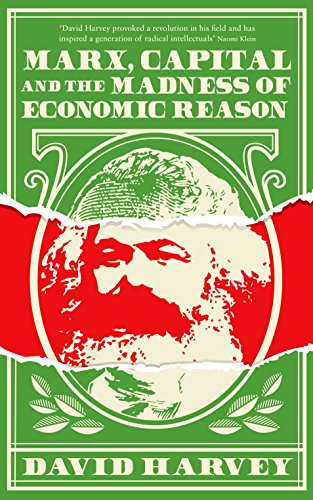內容簡介
內容簡介 馬克思與資本論,還有震撼世界的瘋狂經濟理論 馬克思的資本論是現代最重要的文本之一。全3卷分別於1867年至1883年發行,徹底震撼與改變世界許多國家、政治及人民的思維,直到現在仍持續產生共鳴。本書作者大衛‧哈維教授將針對資本論的內容,重新提出新的看法。哈維以清晰及精準的內容描述了馬克思的資本論架構,並觀察19世紀下半段的資本主義背景。他認為過去150年來的科技、經濟和工業變化,都意味著馬克思的資本論需要調整及修改。馬克思的資本論三部曲著重在資本的流通過程:第一部,勞工如何增加資本價值,就是他所謂的增值(剩餘價值的創造);第二部,如何實現價值,透過買賣轉換成金錢與信用;第三部,如何將價值有效分配。這三部曲是馬克思關於資本主義運作和歷史思想的核心。透過哈維教授深刻的見解與分析,重新剖析馬克思資本論在現今世界的影響與挑戰。 Marx's Capital is one of the most important texts of the modern era. The three volumes, published between 1867 and 1883, changed the destiny of countries, politics and people across the world - and continue to resonate today. In this book, David Harvey lays out their key arguments.In clear and concise language, Harvey describes the architecture of capital according to Marx, placing his observations in the context of capitalism in the second half of the nineteenth century. He considers the degree to which technological, economic and industrial change during the last 150 years means Marx's analysis and its application may need to be modified.Marx's trilogy concerns the circulation of capital: volume I, how labour increases the value of capital, which he called valorisation; volume II, on the realisation of this value, by selling it and turning it into money or credit; volume III, on what happens to the value next in processes of distribution.The three volumes contain the core of Marx's thinking on the workings and history of capital and capitalism. David Harvey explains and illustrates the profound insights and enormous analytical power they continue to offer in terms that, without compromising their depth and complexity, will appeal to a wide range of readers, including those coming to the work for the first time.
作者介紹
作者介紹 David HarveyDavid Harvey is Distinguished Professor of Anthropology at the City University of New York Graduate School, where he has taught since 2001. His course on Marx's Capital, developed with students over 40 years, has been downloaded by over two million people since appearing online in 2008. He is also the author of The Enigma of Capital, A Brief History of Neoliberalism, and The Ways of the World.
